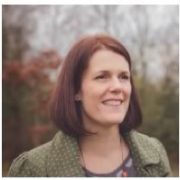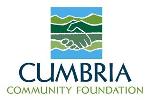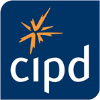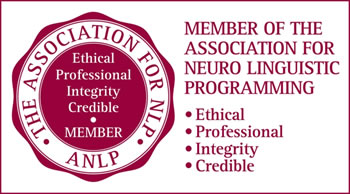Finding confidence from the stories we tell ourselves
 Claire Bradshaw NLP Master Practitioner, Development Consultant and Executive Coach
Claire Bradshaw NLP Master Practitioner, Development Consultant and Executive Coach
I’ve been struck recently by the number of women and men I’ve been working with who have expressed a need to ‘feel more confident’, whether that be about their decisions, their leadership, the way they appear, how they feel in a group, a new experience.
And this got me wondering…what is it about this feeling or this state of ‘confidence’ that we believe will unlock our potential and help us lead happier more courageous lives? And how can we invite it in?
The stories we tell ourselves
Our need to feel confident can be fuelled by feelings of not being good enough, a fear of failure and by over-thinking. We tell ourselves stories (and often they are stories, carefully constructed to substantiate a belief we may have held for a long time, suitably lacking in solid, recent evidence): ‘they don’t really think I did a good job; they’re just being nice’ or ‘they haven’t answered my email yet. That’s because they aren’t interested in my idea’.  We tell ourselves these stories so frequently and so eloquently that they become our reality, the version of ourselves we hold to be true. These stories shape who we are and who we become.
We tell ourselves these stories so frequently and so eloquently that they become our reality, the version of ourselves we hold to be true. These stories shape who we are and who we become.
But what if we were to edit the stories or even re-write them? What if we could discover those stories which would, rather than stopping us doing things or getting in the way, nourish us and enable us to do the things we really want to achieve. What would that be like?
Confidence is….
Confidence is like…’standing tall; it’s shiny and purple; it’s grounded and strong; it’s like sparkly new shoes which are bouncy and light; it’s energy; it’s knowing it’s right; confidence is trust in yourself; it’s honouring who you are’. Just a few responses to the question, ‘what is confidence like’? Close your eyes. Breathe in deep. Think of a time when you’ve felt confident, at home, with friends, at work….what is confidence like for you?
The first step to re-shaping our stories and therefore ourselves is to understand exactly what it is we are telling ourselves. What beliefs am I holding on to which limit me? And then….what will I believe instead which will empower me, to be confident and at my best? And finally….to really believe it…it’s no longer a story but a truth. It’s who you are.
The Mind-Body connection
Our experience may tell us that feeling confident can help us do things we might ordinarily shy away from, that presentation at the annual meeting, for example. It may tell us that how we feel can affect our behaviour and our performance. Amy Cuddy, Harvard Business School Professor, social psychologist and presenter of one of the most viewed TED talks of all time, ‘Your Body Language Shapes Who You Are’, asserts that if we manage our physical selves we can influence our thinking and therefore our confidence levels. In other words, our minds and our bodies are interconnected; a change in one will affect a change in the other. Try it for yourself. Find a quiet space where you won’t be interrupted. Close in your body, lower your head, make yourself small. Stay like that for a moment or two. What is that like? What are your thoughts? How is your confidence? Now, slowly open up, stretch, reach upward, make yourself really big. Stay in that position for a few moments. Notice what that is like. What has happened to your facial expression, to your breathing? What are your thoughts now? How confident do you feel?
Cuddy’s research shows that by managing our posture we generate hormonal responses, increasing levels of testosterone (that which can make us feel powerful) and decreasing levels of cortisol (that which can make us feel stressed). And these play into our thoughts and our actions. That presentation becomes more achievable, that difficult conversation much easier. Have a look at the TED talk – it certainly changed things for me.
The next chapter
How we are in the world can impact on the stories we tell ourselves. And the language we choose to narrate our stories is vital to our sense of self and to how confident we feel.
By noticing our stories and learning to create them afresh, we can narrate for ourselves a different outcome, a different reality, a different truth.
The Didsbury House Hotel is the setting for ‘Shine Brighter’, an opportunity to discover your own story and feel more confident. The lovely Lisa Jeskins and I will be working together to deliver this on 3rd March 2017 with more workshops over the course of next year. To book your place click on Claire Bradshaw Associates website:




